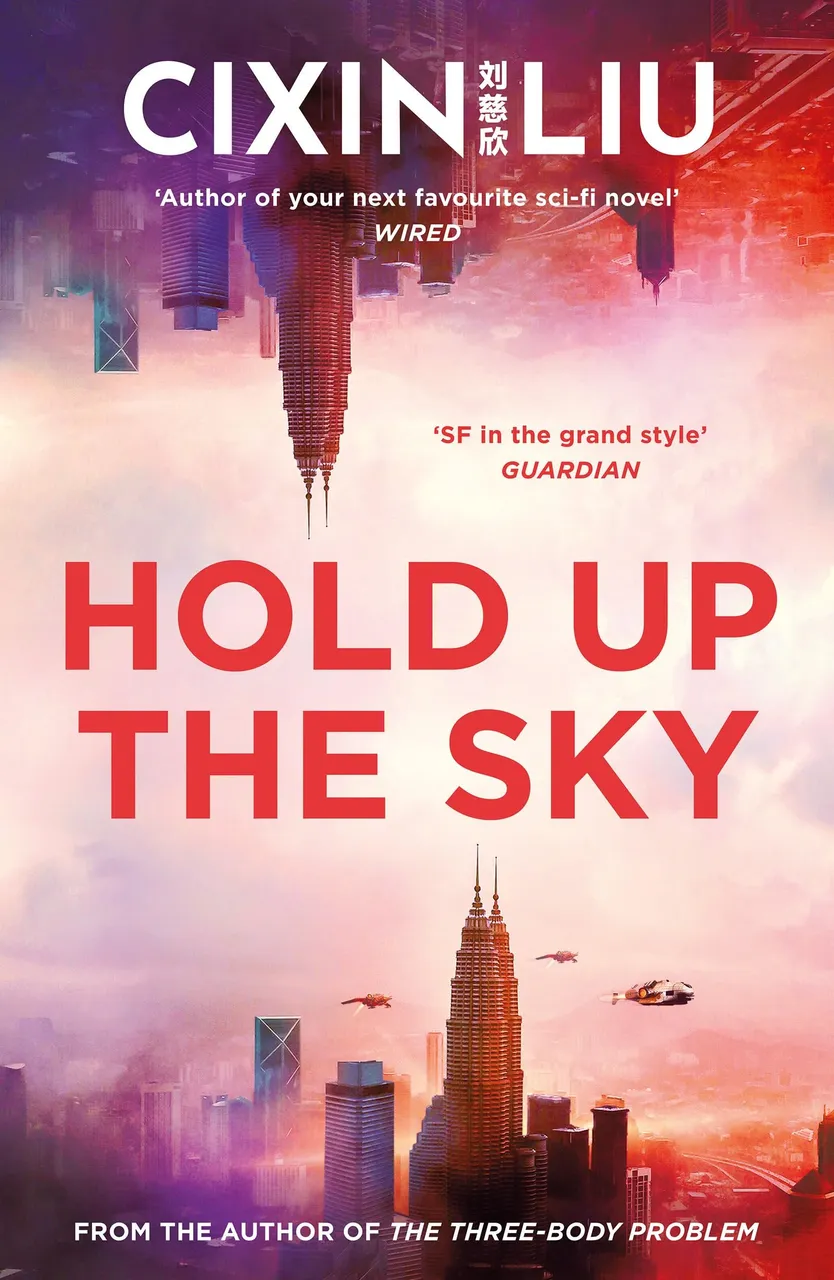Cixin Liu is best known as the author of the novel, and corresponding Three Body Problem series. I very much enjoyed the style of writing and the deep sense of parable within his translated prose, so I am meandering my way through a collection of short stories, Hold Up The Sky.
The first of these is called "The Village Teacher".
A teacher in a simple rural village is dying. They don't know that yet, but depending upon your view of the biological process of life, the concept of dying as an event, a moment, or a prolonged series of moments will differ.
Cixin Liu opens his anthology of stories, translated into English, but still with a deeply Chinese perspective in a beautiful and poignant manner.
In that rural village, the teacher, who mostly acts as a protagonist teaches the kids proudly, quietly and with little complaint.
The simple village eschew cultivating their barely arable land, in favour of selling their material possessions and the machinations of industry.
They boom and bust, but still the teacher endures. The kids are important to him.
Their education is important. When he is diagnosed with cancer, he seeks out treatment in the big city. He can't afford treatment. He will continue teaching up until the day he dies.
These story beats, delivered dispassionately and matter of factly, illustrate the immense gulf between poverty and privilege in not just China, but across all of Earth's nations.
This build up about a school teacher ina rural village isn't exactly science fiction at this point of the story. It is a tale of two different planets of technology taking place within a few hundred kilometres.
I started to wonder where it was going, until suddenly, the perspective shifts to a solar system traversing race of technologically advanced somebodies.
They are intent on limiting the spread of a rival somebodies. They do this through a singularity bomb, a powerful weapon that simply clears space by virtue of it being fundamentally, a black hole.
Due diligence, however is handled. Questions are broadcast into space, and if a civilisation can within the target area thay would be otherwise erased, the weapon shall not be deployed in that region.
The only thing stopping this weapon from going off, remarkably, somehow, are the students of that teacher, repeating the last lesson their teacher taught them about thermodynamics.
Meanwhile, an oblivious humanity continues, albeit with a few less stars in the night sky, thanks to the singularity bomb.
This is a story about how important education is. It is a story about how blissfully unaware we can be about events that take place beyond the universe of our personal perceptions and neighbourhoods, let alone unseen, unheard, unknown universe shaping events.
Our relative immaturity as a species is hughlighted. For too long, foo many dismiss knowledge and fact thay while it may be irrelevant to their pursuits, may one day save a life, or many lives.
This is an insughtful story aboit how a little education can make a big difference. How even a child can posses knowledge and wisdom that may some day save all of the species.
From this story, I also got the impression that respect of one's fellow human must transcend age barriers. While we are so often encouraged and told to respect to, and listen to our elders, we must too, listen to all voices.
Perhaps not all at once, for that cacophony would be an impossible, belligerent noise full of conflict and nonsense, but to instead, give each voice the time it deserves to enunciate its ideas upon the universe.
